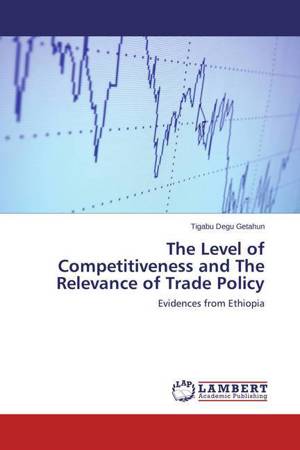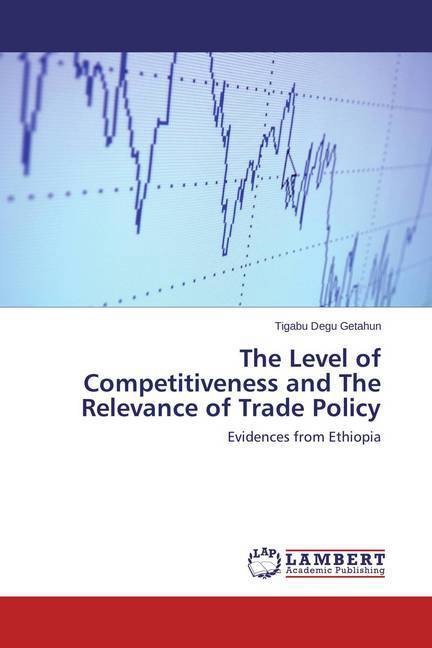
- Afhalen na 1 uur in een winkel met voorraad
- Gratis thuislevering in België vanaf € 30
- Ruim aanbod met 7 miljoen producten
- Afhalen na 1 uur in een winkel met voorraad
- Gratis thuislevering in België vanaf € 30
- Ruim aanbod met 7 miljoen producten
Zoeken
The Level of Competitiveness and The Relevance of Trade Policy
Evidences from Ethiopia
Tigabu Degu Getahun
Paperback | Engels
€ 62,45
+ 124 punten
Omschrijving
Ethiopia has undertaken various trade and macroeconomic policy reforms since the 1997/98 to increase the overall trade competitiveness of the country.To investigate whether these policy reforms improves the countries over all level of trade competitiveness over time and vis-à-vis selected Africa countries , the study has computed trade competitiveness index for Ethiopia and other 31 African countries over the period 1997-2007. The index consists of three major components, each capturing a different dimension of trade prospect of a country. Even though Ethiopia's overall level of trade competitiveness is very low compared to most African countries, the potential to compete in some products may be there. To identify sectors over which Ethiopia has revealed and potential comparative advantage, the study computes Balasa and DRC index for the major exportable and import competing products.Using econometric and Computable General Equilibrium Model,the study also illuminated the unintended effects of macro economic and sector specific policies. Several other points have been made in this book.
Specificaties
Betrokkenen
- Auteur(s):
- Uitgeverij:
Inhoud
- Aantal bladzijden:
- 128
- Taal:
- Engels
Eigenschappen
- Productcode (EAN):
- 9783659644528
- Verschijningsdatum:
- 5/01/2015
- Uitvoering:
- Paperback
- Afmetingen:
- 150 mm x 220 mm
- Gewicht:
- 200 g

Alleen bij Standaard Boekhandel
+ 124 punten op je klantenkaart van Standaard Boekhandel
Beoordelingen
We publiceren alleen reviews die voldoen aan de voorwaarden voor reviews. Bekijk onze voorwaarden voor reviews.







